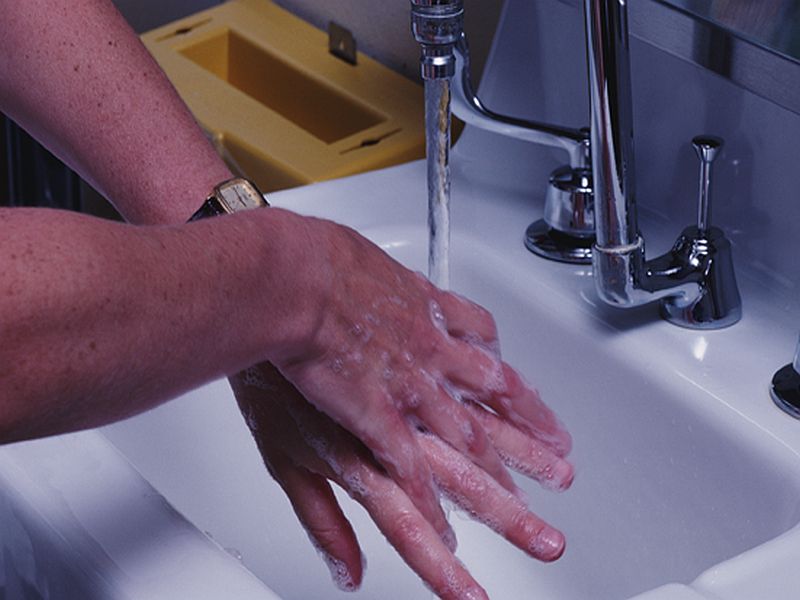
Friday, September 2, 2016

FRIDAY, Sept. 2, 2016 (HealthDay News) -- The U.S. Food and Drug Administration is banning most antibacterial soaps and body washes currently on store shelves, arguing that the products create potential health risks but don't perform any better than plain old soap and water.
The ban covers soaps and body washes containing triclosan and triclocarban, the two most common antibacterial ingredients, the FDA says. Another 17 active ingredients also are included in the ban.
"Most consumer wash products labeled 'antibacterial' or 'antimicrobial' contain at least one of the antibacterial ingredients addressed in this final rule," said Dr. Theresa Michele, director of the Division of Nonprescription Drug Products at the FDA's Center for Drug Evaluation and Research.
There are more than 2,100 antibacterial soaps sold today, representing about 40 percent of the overall soap market, Michele said during a media briefing Friday.
The agency said it took this action over concerns that antibacterial soaps might be contributing to bacterial resistance.
In the United States, at least 2 million people a year become infected with antibiotic-resistant bacteria, and at least 23,000 die from these infections, according to the U.S. Centers for Disease Control and Prevention.
The FDA also noted other health concerns related to long-term use of the now-banned active ingredients. For example, recent studies have shown that triclosan can affect the thyroid, estrogen and testosterone systems of mammals, which could have implications for human health, the agency reported in its final rule.
At the same time, manufacturers failed to show that their antibacterial products are any better than ordinary soap and water at preventing the spread of germs, the FDA said.
People should remain diligent about washing their hands with regular soap and water "to avoid getting sick and prevent the spread of germs, especially during the start of the school year," Michele said.
The new ban does not cover hand sanitizer gels or wipes, which are not used with water and often contain alcohol as the active ingredient. It also does not cover antiseptics used in health care settings, the FDA said.
If soap and water aren't available, the CDC recommends that people use an alcohol-based hand sanitizer containing at least 60 percent alcohol.
Manufacturers have one year to comply with the ban, although the FDA noted that many have already started phasing out triclosan, triclocarban and other active ingredients. Both Procter & Gamble and Johnson & Johnson announced prior to the ban that they are phasing out triclosan, Michele said.
The FDA estimates that this ban will reduce Americans' exposure to these active ingredients by 2.2 million pounds per year. Triclosan is most often included in liquid soap, while triclocarban is found in bar soaps, Michele said.
The ban first was proposed by the FDA in 2013. At that time, the agency required manufacturers to provide additional data on the safety and effectiveness of the active ingredients in their antibacterial soaps, if they wanted to keep those products on the market.
In terms of effectiveness, the manufacturers had to prove to the FDA that antibacterial soaps worked better than plain soap and water at preventing the spread of germs or reducing infections.
The FDA is deferring the proposed ban one year for three other ingredients used in consumer wash products, based on promises from industry to provide more evidence, Michele said.
Antibacterial soaps containing benzalkonium chloride, benzethonium chloride and chloroxylenol will remain on the market while manufacturers develop additional safety and effectiveness data for these ingredients, she said.
SOURCE: Sept. 2, 2016, media briefing with Theresa Michele, M.D., director, Division of Nonprescription Drug Products, Center for Drug Evaluation and Research, U.S. Food and Drug Administration
HealthDay
Copyright (c) 2016 HealthDay. All rights reserved.
News stories are provided by HealthDay and do not reflect the views of MedlinePlus, the National Library of Medicine, the National Institutes of Health, the U.S. Department of Health and Human Services, or federal policy.









































No hay comentarios:
Publicar un comentario